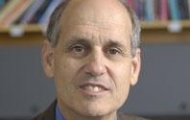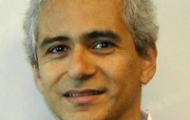E-Newsletter Featured Stories: Spring 2019
SPRING 2019
Fresh Faces
We would like to welcome Maria Beeson and Nanette Bell—both Sr. Administrative Coordinators, and faculty Research Associate Jiafeng (Jay) Zhu, to the Department!
Maria Beeson joined us on November 5. Maria will be taking on many of the duties previously handled by Kara Schoenberg, including providing administrative assistance/project management support to Bloomberg Distinguished Professor Nilanjan Chatterjee, front office support and events management. She also has a wealth of experience in SAP purchasing, invoices and travel, and will be able to serve as a resource in purchasing items through SAP to help reduce the need for certain reimbursements. Maria comes to us from the School of Medicine, Department of Neurology, where she worked as a Program Administrator for the last four years. She previously held positions with Mitsubishi Heavy Industries America Inc. and McCormick & Company, Inc.
Nanette Bell joined us on November 26 and will provide administrative and front office support to Department Chair Karen Bandeen-Roche, as well as participate in planning special events and diversity outreach initiatives. She has over twenty years of administrative experience with Johns Hopkins and, most recently, was a senior IT call center agent with the Johns Hopkins Hospital. She is eager to resume her work in an administrative role. She received both her Bachelor and Master of Science degrees from Johns Hopkins University.
Jay started with us on December 10th and will work under the mentorship of Karen Bandeen-Roche, Ravi Varadhan, and Gayane Yenokyan. He will be working with Karen, Ravi, and Jeremy Walston on a UH2/UH3 study to develop measures of physical resiliency in older adults and will devote the majority of his time to this study as a statistician. His remaining time will be spent contributing to statistical consultation for JHBC. Jay earned his undergraduate degree in risk management at Zhejiang University in 2014. He then earned two master’s degrees from Virginia Tech: one in agricultural and applied economics in 2017, and one in statistics in 2018. He brings to us valuable experience in consultation, which he obtained in the course of his studies and thereafter, including in aging.
Accolades
Scott Zeger, Installed as John C. Malone Professor

We are pleased to share with you the news that Scott Zeger, professor in the Department of Biostatistics at the Bloomberg School of Public Health and a faculty member in the Malone Center for Engineering in Healthcare at the Whiting School of Engineering, has been appointed as a John C. Malone Professor. The John C. Malone Professorships were endowed through the generosity of John C. Malone MS ’64, PhD ’69 to support outstanding faculty members working in the Malone Center for Engineering in Healthcare.
Scott holds joint appointments in JHSPH's Department of Epidemiology and Department of International Health, as well as appointments in the Krieger School of Arts and Sciences and the School of Medicine. His research focus is on the development of statistical models that support scientific learning about human health. His work in the development of methods for the analysis of longitudinal and clustered data and to evaluate the impact of air pollution on human health has contributed greatly to statistical, medical, and public health science. His most recent work is in Bayesian models for individualized health and uses population data to improve decisions related to an individual’s current state of health and their likely health trajectory, as well as for decisions related to the benefits and costs of competing interventions.
Noteworthy
Fernando Pineda Retiring this Spring

Fernando Pineda PhD, Director of the Joint High-Performance Computing Exchange (JHPCE), retired in April 2019. The JHPCE is a fee-for-service High-Performance Computing facility in the Department of Biostatistics at the Johns Hopkins Bloomberg School of Public Health (JHBSPH), open to all Johns Hopkins affiliated researchers. High-Performance Computing in the Department of Biostatistics started in 2004 with an original purchase of computing hardware by then Department chair Scott Zeger to start a "next generation cluster". In 2007, the JHPCE was installed as an official university service center. Dr. Fernando Pineda was involved with this initiative from the very beginning, has directed it over most of its life, and played a key role in the design and implementation of the system. Under Dr. Pineda's guidance the computing and storage systems were optimized for high-throughput biomedical research. The cluster currently has over 3000 cores, 22TB of DRAM and over 8 PB of networked mass storage. Networked mass storage uses open-source file systems and custom-built hardware: its capacity has doubled every year since 2007. JHPCE is used primarily by labs and research groups in the JHBSPH, the Johns Hopkins School of Medicine, and the Lieber Institute for Brain Development, with over 1,000 user accounts total.
Dr. Pineda is credited with several innovations that made the existence of this unique computing resource possible. Under the administrative model he developed, the JHPCE operates as a formal Common Pool Resource hierarchy with rights to specific resources based on stakeholder ownership of resources. Excess computing capacity is made available to non-stakeholders on an as-available basis, in exchange for fees that defray the operating costs of the stakeholders. Dr. Pineda formalized and implemented a financial model for recovering costs. As a consequence, new hardware gets continuously phased in as older hardware gets retired, excess user capacity is usually available, and computing costs are minimal, typically below cloud computing costs. This administrative model has allowed the cluster to be financially viable and continuously up-to-date with the latest hardware over a nearly 15-year period. Moreover, with the emergence of new technologies such as next-generation sequencing, imaging, and wearable computing, and the corresponding explosion of the size of available data, faculty were desperate for storage. Unfortunately, the cost of "off-the-shelf" commercial storage was prohibitive. To address the crisis, Dr. Pineda developed an innovative strategy to build in-house storage systems, costing approximately 75 percent less than commercially available counterparts, and less than (non-local) cloud-based archive storage. In addition, the energy savings are substantial compared to comparable commercial systems, making it possibly the least expensive and the lowest-power parallel file system in existence. This remarkable innovation by Dr. Pineda was featured in January 2016 in an R&D Magazine article ("Pioneering Green, Dirt-cheap Storage for Life Sciences Research”). Dr. Pineda, through his leadership of the JHPCE, has allowed research to occur that was previously impossible to conduct. In addition to contributing to the field of high-performance computing, his work has allowed others’ research to flourish, ranging from sophisticated statistical methods development to basic scientific discoveries.
Alumni Spotlight
Profiling Biostat Alum, Sandy Eckel and Patrick Heagerty

Congratulations to Sandy Eckel (Ph.D., 2010), who has been promoted to associate professor in the Division of Biostatistics at the University of Southern California. Her work focuses on statistical methods and applications in environmental epidemiology. Dr. Eckel leads the statistical team of an NIBIB-funded project to develop an integrated health monitoring system for using wearable and stationary sensors to measure environmental, physiological, and behavioral factors in epidemiological studies of pediatric asthma. Dr. Eckel also leads NIEHS-funded research on statistical methods for modeling air pollution effects on exhaled breath biomarkers. Exhaled breath analysis is a promising method for medical monitoring and diagnostics because it is non-invasive and limitlessly repeatable. Dr. Eckel specializes in the fractional concentration of exhaled nitric oxide (FeNO), one of the best-studied biomarkers in exhaled breath. FeNO is a biomarker of airway inflammation used in the clinical assessment of asthma and environmental epidemiology. FeNO is conventionally assessed at a 50 ml/s exhalation flow rate (denoted FeNO50). In clinical practice, respiratory physicians are increasingly guiding treatment decisions using FeNO50. In environmental epidemiology, FeNO50 has been shown to be a sensitive marker of respiratory response to inhaled environmental exposures. Dr. Eckel has focused on a novel method of assessing FeNO: “multiple flow FeNO analysis” in which FeNO is measured at multiple flow rates to noninvasively assess airway and alveolar inflammation. Dr. Eckel’s research focuses on melding statistical methods with deterministic models of airway and alveolar sources of NO. Her work has contributed optimal flow rate sampling designs, improved methods of estimating airway and alveolar nitric oxide, and methods for estimating the effects of potential determinants (e.g., air pollution) on airway and alveolar inflammation.

Congratulations to alumnus Patrick Heagerty (Ph.D., 1996), who has been elected to the Johns Hopkins Society of Scholars. This select recognition honors individuals who spent formative graduate, postdoctoral or professional years at Hopkins and then went on to achieve marked distinction in their careers. Patrick is a leading scholar in longitudinal data analysis, precision medicine, and other areas, and he chairs the University of Washington Department of Biostatistics. https://hub.jhu.edu/2019/04/10/society-of-scholars-induction-ceremony/
Extra! Extra!
Department Happenings
MISTIE III Trial
The findings of the MISTIE trial on which many in our department have collaborated have appeared in The Lancet. Congratulations to Rick Thompson, Michael Rosenblum, Gayane Yenokyan. Josh Betz, Elizabeth Sugar, and to Dan Hanley and the whole MISTIE team! Here is the link for the “LEARN MORE”: https://www.thelancet.com/journals/lancet/article/PIIS0140-6736(19)30195-3
Neuroconductor R Platform
The keynote article for the Neuroconductor R platform has appeared in Biostatistics. The Neuroconductor software repository and educational resource—the analog of Bioconductor—has been developed by our own Ciprian Crainiceanu, Brian Caffo, John Muschelli, and Adrian Gherman together with others: Check out this wonderful compendium at https://neuroconductor.org/
Faculty Promotions
- Hongkai Ji, Professor
- Jeff Leek, Professor
- Kasper Hansen, Associate Professor
- Carol Thompson, Associate Scientist
- Sarah Wheelan, Associate Professor
- Gayane Yenokyan, Associate Scientist
- Vadim Zipunnikov, Associate Professor
